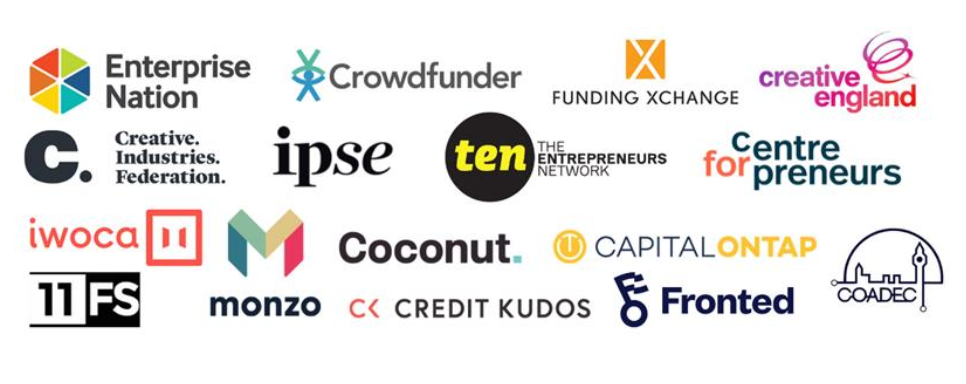Coronavirus: A proposal for more help for small businesses and the self-employed

Posted: Mon 23rd Mar 2020
Enterprise Nation has joined forces with other business groups, think tanks, technology companies and funding providers for a joint submission to HM Treasury on more support to help small businesses and the self-employed deal with the impact of coronavirus.
This submission is made to HM Treasury from organisations operating at the front line of small business support and access to finance. We collectively reach and represent more than 1 million small firms and self-employed people. It is a moment for us to pull together, show compassion, and action solutions that will support our community.
In that vein, we welcome HM Government and Treasury measures taken to date. They are significant and reflect the enormity of challenges faced by small business. Founders and entrepreneurs are resilient and any measures on their behalf need to be delivered at pace, via trusted third parties, so they can continue to not only run the business, but keep it in shape to grow for the future.
This submission is focused in two areas; how funds announced can reach small businesses in time, and a solution for supporting the self-employed and freelancers who, to date, have not been covered in announcements and schemes.
We put forward to you three proposals. They are:
Single access route for emergency loan scheme
The Coronavirus Business Interruption Loan Scheme (CBILS) is welcomed - attention must now turn to its execution. We accept that the roll-out of the scheme will be difficult as lenders need to deliver operational processes that can cope with the volume of requests and this will take time. The dislocation of staff is causing many banks and lenders challenges too.
Real-time data from Funding Xchange on what needs businesses have show the vast majority are looking for less than £15k just to keep going. The solution proposed is based on removing blocks to get them what they need.
Solution:
Support the creation of a digital point of access into the emergency loans programme that connects directly with the lenders most likely to be able to fund small businesses and, driven by FundingXchange, this single point of entry could also provide assistance if the business is unsuccessful in accessing finance as the company has a wide variety of other support solutions available.
Many small and micro-businesses have been funded by digital lenders, like Iwoca, Esme, Funding Circle, MarketFinance and Capital on Tap, who have easily scalable processing capacity. Unlike banks, digital lenders can assess businesses independently of where they are holding their bank account.
In addition, there are a range of sector specialist lenders who have existing systems, processes and infrastructure for distributing grants and loans to small businesses, such as Creative England. Many of these already have contracts with BEIS that provide existing government oversight and security for the distribution of taxpayer funds.
Adding these lenders to the CBILS scheme or a similar support mechanism would ensure that loan applications can be processed fast - getting money to businesses more quickly. It also ensures that businesses turned down by banks have alternative solutions. Funding Xchange has digital integration to these lenders (as well as 40 other lenders) and is ensuring that businesses can easily access all solutions available.
Offer a grant alternative
Many small businesses do not want to get into a debt position. For these businesses, a smaller amount of cash grant is preferable. Local councils and LEPs want to offer cash grants announced by the government to viable and trading businesses in their boundary. Yet there is no clarity on whether councils can distribute these funds via trusted third parties such as Crowdfunder.
Solution:
Distribute a proportion of loans as cash grants to match fund amounts being raised by local communities through Crowdfunder's Pay It Forward campaign. People are committing to pay now for future services and to allow businesses who are adapting to continue trading with their customers. The match fund approach demonstrates a level of viability of the business. This could be matched up to an amount of £5,000 by HM Government so £1000 raised = £1000 match from HM Government, capped at £5000. This is half the £10,000 cash grants available to small businesses in rateable properties and as it is matched money, it at least doubles money contributed from HM Government. £5000 is two months (2 x £2500) being offered through the wage support scheme.
If a business raises a total of £10,000 via Crowdfunder and government match, this should keep the business solvent and trading during the 12 week period we are initially trying to cover. The Crowdfunder campaign is already up and running and distributing cash and the relationship with Local Authorities are already operational and therefore this could be activated immediately.
We think this solution could also work with the self employed and we are seeing increasing numbers of projects from sole traders being activated.
Offer financial support to the self employed
HMT announced historic levels of support for PAYE employees who find themselves without work due to COVID-19. Furloughed employees will receive up to 80% of their income or £2,500 per month (whichever is lower.)
Over 5 million self-employed and freelancers in the UK are not currently eligible to receive income support. This is largely due to the administrative complexities associated with self-employed income. How can similar financial protection and support be afforded to the self-employed?
We would recommend early self-certification of lost income and a grant to self-employed people based on their income.
Solution:
Representatives from the UK fintech sector have come together to build Covid Credit which is a proof of concept to generate a fast and simple self-certification of income loss to send to HMRC. By combining a web flow and incorporating technology such as Open Banking to collect historic banking data it is possible to provide self-employed people the option to self-certify lost income without submitting a self-assessment. In this proof of concept only sole traders are supported, limited companies involve more complexity.
The team is free to demo this product and share ideas around fast delivery of this support to self-employed people. We also recognise that there is the chance to use the existing self-assessment tax system for self-certification given that self-employed people can submit self-assessments from 6 April for the 2019/20 tax year.
In summary, in adopting these solutions, HM Treasury will show not only how it has listened to small businesses and their representatives, but also how solutions are being developed by entrepreneurs, for entrepreneurs.
We commend these proposals and solutions to you.
Signed and supported by:
Enterprise Nation
Crowfdunder
Funding XChange
Fronted
Creative England
Creative Industries Federation
IPSE
The Entrepreneurs Network
Centre for Entrepreneurs
IWOCA
Monzo
Coconut
Coadec
Capital on Tap
11:FS
Credit Kudos


